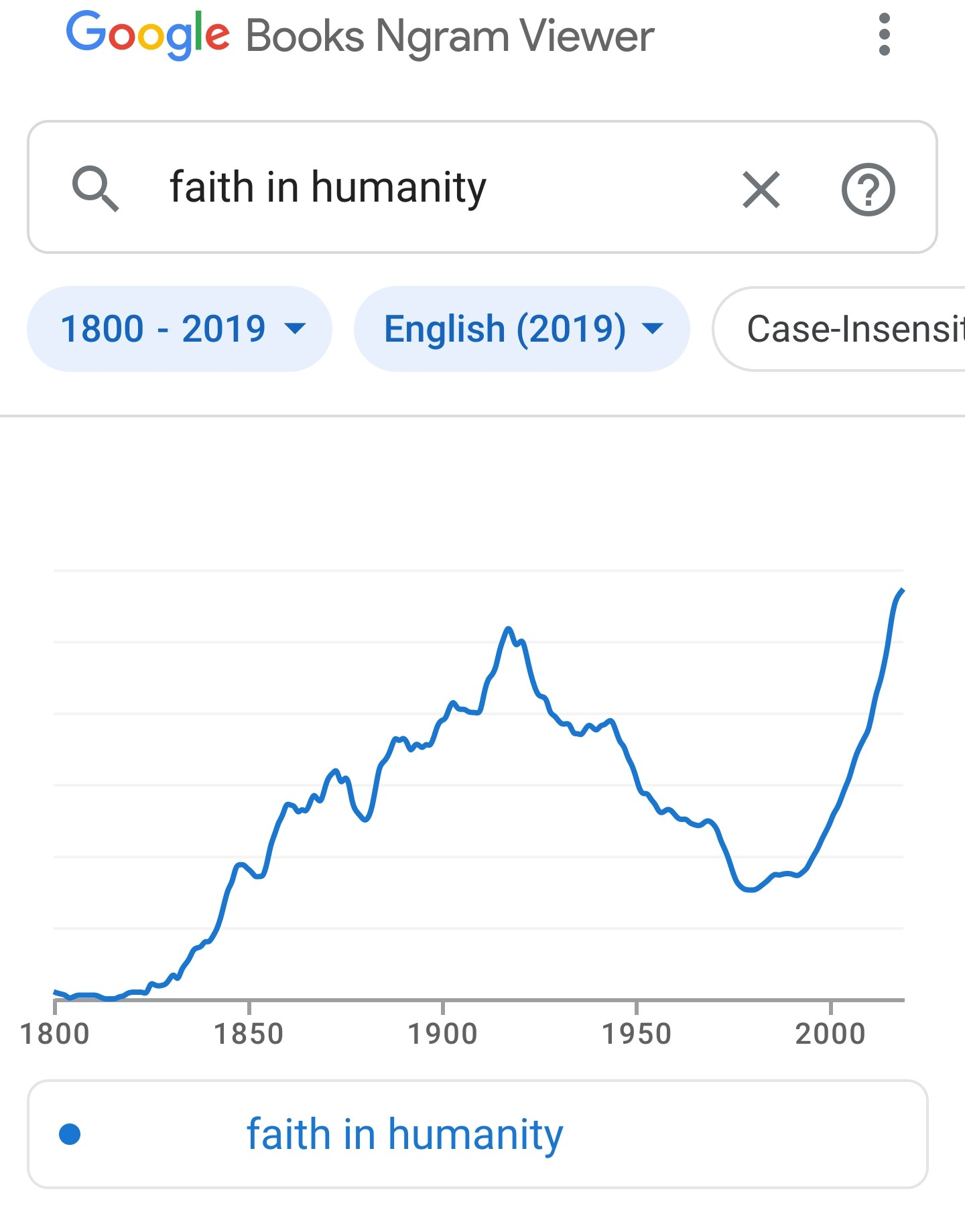- 15 Posts
- 64 Comments

 3·2 years ago
3·2 years agoI guess it would depend on whether or not the project spawns a dedicated community that lasts for a long time. Without a wide pool of knowledgeable contributors, I think it would be hard for an original team to both support the one design while also developing the next iteration.
Not to bring it up as a whipping boy, but let’s take the case of Wayland, which is “just” a software protocol. It was started back in 2008, and is still under active development. As more projects support it, more edge cases are coming up, which is why new features are added to the protocol all the time. In those 15 years, they’ve had to adjust to technologies that didn’t exist back in 2008, like widespread adoption of 4k HDR displays, or Vulkan. Now imagine that, but with every aspect of a computer. In 2008, DDR3 RAM was just a year old. Today we’re on DDR5 and you (probably) can’t buy a new machine that takes DDR3. PCIE 2 was the latest shit in 2007. Now I see that PCIE 7 is planned for next year.
A global corporation can support old products while also developing new technologies because they have unfathomable labor and capital at their beck and call.
I think that free software can keep up with proprietary offerings because the barrier to entry is relatively low. You just need free time and a source control client. I think it would be different if your project toolchain involved literal tools that cost millions of dollars.
I thought she already had the cat before starting the self destruct sequence. She started looking for it while everyone else was getting ready to leave.

 7·2 years ago
7·2 years agoI think because such an undertaking would require a wide breadth of extremely specialized knowledge. It would require intense coordination of many experts to work together over many years, all to design something that:
- Will eventually be obsolete within a few years
- Is outside the realm of replicability for individuals (I never heard of anyone with a nanometer-scale photolithography room in their house)
Item 1 is OK for hobbyists, who might value open source over new-ness, but item 2 all but guarantees that only big corporations can actually get involved. They don’t care about free and open source. They just want a computing platform that their engineers can develop a product for. As long as there’s enough documentation for their goals, open source is irrelevant.
The power of modern computing comes partly in how it enables abstraction. You don’t need to understand the physics of electrons through a transistor to write a video game. Overall, the open source community has generally converged on the idea that abstracting away the really hard stuff is an acceptable tradeoff.

 4·2 years ago
4·2 years agoAs a child, Easter holiday in a cottage in Cornwall. It had a coal fireplace.
Firstly, discord is entirely the wrong medium for documentation.
Secondly, documentation should be at least as accessible as the code. That is to say, if I can view the code without creating an account for some service, then I should also be able to read the documentation too.

 5·2 years ago
5·2 years agoWhat are people’s thoughts about the children’s size urinal? Never use it if there’s another option? Only use it if the other option would place you adjacent to another person? What about if you have a choice between adult and child’s urinals next to each other, but using the child’s urinal would allow space for another person to optimally avoid neighboring persons?
I feel like this is a variant of the trolley problem that’s woefully unexplored.
Every morning at 4am, the village children wake up. With swatters in hand, they race into the memory banks, ready to debug the relays before the morning batch job is run.

 12·2 years ago
12·2 years agoCaps lock is great for rebinding to Ctrl

 1·2 years ago
1·2 years agoI’ve seen some shops put aside the extra shot if they know another customer has ordered one and they can serve it before it sits around too long. Otherwise, you can dose the portafilter with less coffee for a single.
Because then you can use the ARC protocol to minimize the number of remotes. The TV will pass volume controls through the HDMI port and the sound bar will adjust volume.

 2·2 years ago
2·2 years agoThere is the Mournhold clutter collector, who gives you a quest to bring him random knick-knacks from around Vardenfell.

 41·2 years ago
41·2 years agoEvery room looks cold and echo-y. Not a single carpet anywhere, and it’s all a hideous monochrome. That photo with the TV in it looks like the world’s most miserable media room.

 7·2 years ago
7·2 years agoAccording to Google book search, the phrase goes at least back to the 1800s. It’s interesting to see that spike between 1900 and 1950. I’d bet it’s related to the horrors of WW1.
As for what it means, other posters have answered: To have faith in humanity is to believe that humans on average have an inherent desire to do the right thing.


 1·2 years ago
1·2 years agoThe drag is air against the whole body of the train, so you need vacuum everywhere.
Assuming that you could build such a big vacuum there would be safety concerns. What if there’s an accident in the tube? Does everyone in the train depressurize and die? Assuming people can survive and get out of the train car, now they’re in a tube that’s 100 miles long. How can you build emergency exits in a system designed to be as airtight as possible?
As someone who hasn’t played much DnD, but has a bit of experience with other systems: What’s the reason behind not splitting the party? Maybe it’s just the mechanics and rules of the systems I have played, but splitting the party has led to cool emergent stories and opportunities for unexpected drama.

 81·2 years ago
81·2 years agoI’ve been trying to include failure techniques from DungeonWorld’s suddenly ogres in my game. It proposes a few neat ideas for consequences of failure that are broadly applicable to many RPG systems.
Eg, in the example above, maybe the Rogue (truthfully or not) blabs that their source was [ancient evil tome forbidden by the paladin’s order]. Now the complication is not that the Paladin disbelieves the rogue’s claim, but that they might question the rogue’s true intentions.
Edit: Or in the example given about landing a plane. An experienced pilot won’t crash 1/20 times, but what if Air Traffic Control did a bad job managing things today? It will take 1h for the plane to be assigned to a gate, but you need to catch the train to Borovia in 1h15.
An award winning surgeon rolls a 1 while giving a routine lecture? The presentation is so fucking boring that half the students fall asleep. Now the surgeon has to deal with the extra office hours of students who don’t understand this part of the curriculum.

 6·2 years ago
6·2 years agoAccording to memory alpha wiki:
100 slips = 1 strip
20 strips = 1 bar
There are also bricks, but no known conversation rate exists for that amount.

 3·2 years ago
3·2 years agoYeah, but do you want to be the person who has to fact-check every photon that hits these solar cells? I’m sorry, but a lie can radiate from the surface of a star and power your vehicle before the truth can even put its shoes on.

 10·2 years ago
10·2 years agoAh, the Quark approach:
- Take a drink that costs forty slips of latinum to make
- Pour it into a novelty glass
- Add a dash of liquor
- Charge two strips of latinum for it








Sorry, what’s .Net again?
The runtime? You mean .Net, or .Net Core, or .Net Framework? Oh, you mean a web framework in .Net. Was that Asp.Net or AspNetcore?
Remind me why we let the “Can’t call it Windows 9” company design our enterprise language?